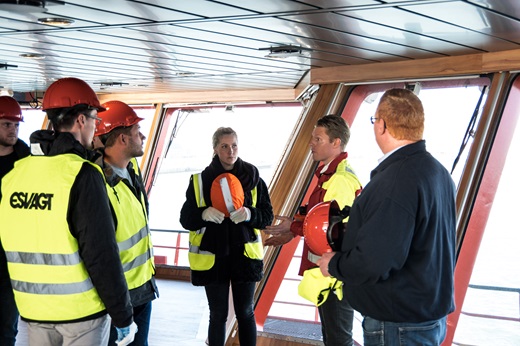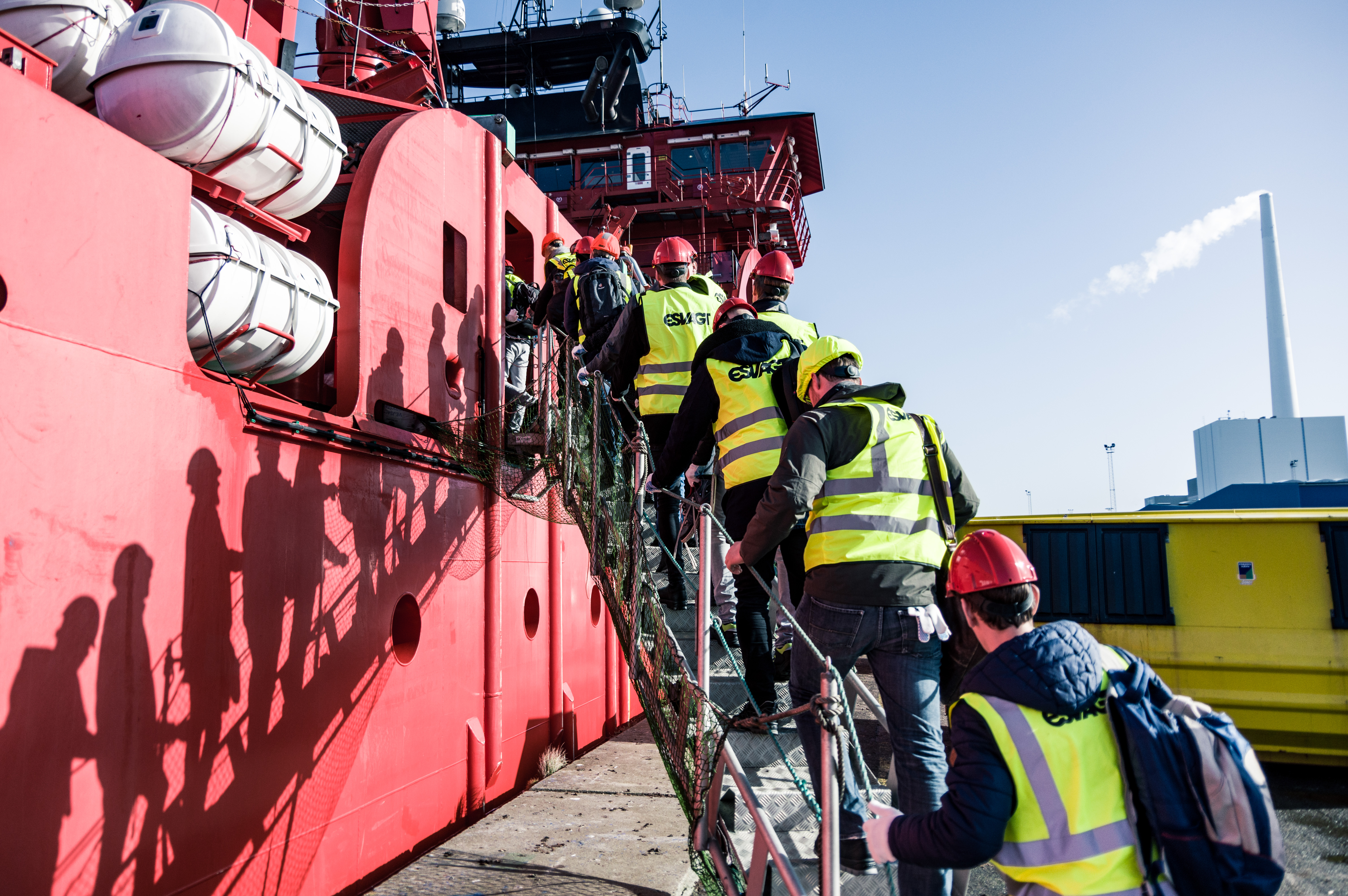
SDU company visit at ESVAGT
SDU students had the opportunity to visit ESVAGT, one of the big companies in Esbjerg’s harbor in connection to their exam cases in the course “Strategy and Competition”.
In surprisingly mild and sunny weather for Esbjerg standards in February, students from the programmes Marketing and Innovation and Sports and Event Management, as well as SDU lecturers Tove Brink and Dewan Ahsan were invited on board the ‘Esvagt Faraday’, one of ESVAGT’s Service Operation Vessels in the harbor of Esbjerg.
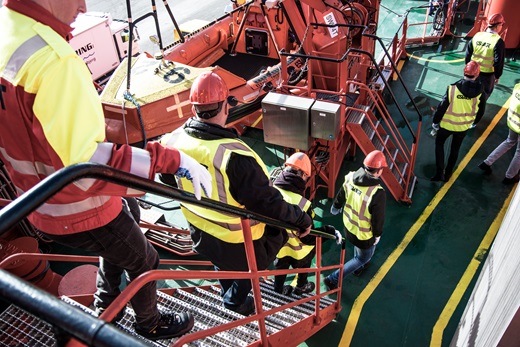
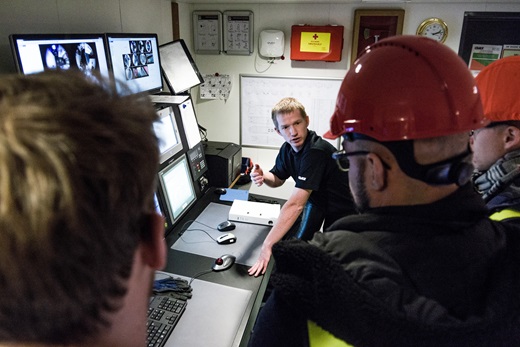
The group enjoyed an interesting tour of the vessel that is purpose-built to service offshore wind farms. On board the vessel, ESVAGT gave a presentation about the company, which enabled the students to get a great insight into the company’s operational areas, goals, strategies and future challenges.
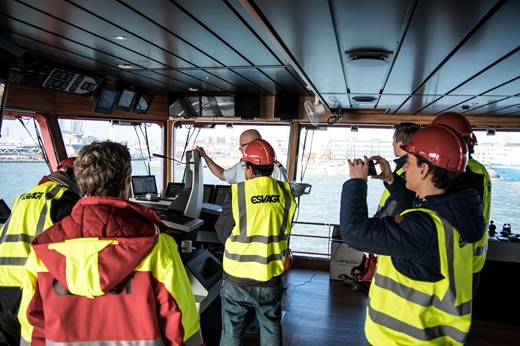
ESVAGT’s company mantra is “making the sea a safe place to work” with the aim of being world leading in doing so. The company was established in Esbjerg in 1981 and has since been growing steadily. The challenge presented to the students was “How can ESVAGT strengthen their strategy to create enhanced competitive advantage within offshore wind park services?”.
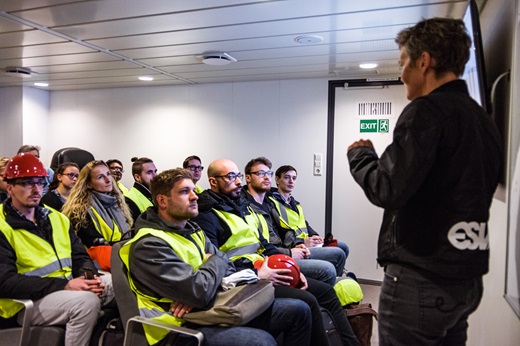
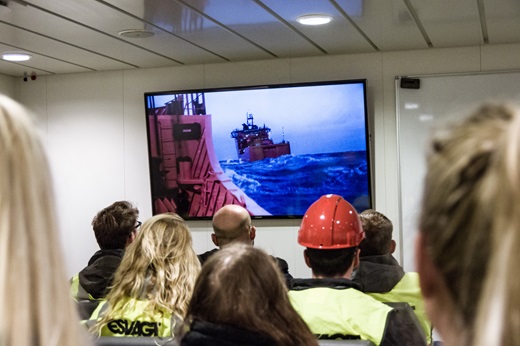
Master students of the programmes Marketing and Innovation as well as students from Sport and Event management are working on practical exam cases in the course “Strategy and Competition”. This year’s cases were provided by Vadehavscentret, ESVAGT, Kvist industries and Viking Life-Saving Equipment.
"It was great to be able to get some more practical insight into the company. Furthermore, the tour of the vessel was really impressive. I believe it is beneficial for us as students, especially in this course to be able to apply strategic tools on a real case" says Krischan Behrendt, Master Student in Marketing and Innovation. He and his group have been working on the exam case connected to ESVAGT for about 4 weeks.
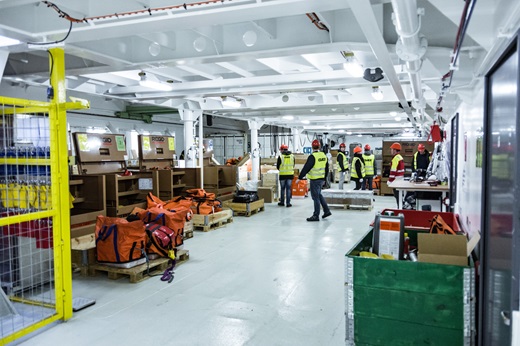
Not only the students benefit from working on practical strategy cases, but there are also great advantages for the participating companies. As the students work on the strategy case as a real exam case, the companies get information and analysis on their organisation from ‘outsiders’ and get insight and inspiration on new models and tools for strategic analysis in the organisation.
Associate Professor Tove Brink, who initiated this cooperation concludes: “I am happy to see the great interest of the Companies involved and the interest of the students in this course combining theory and practice regarding strategy development.”
